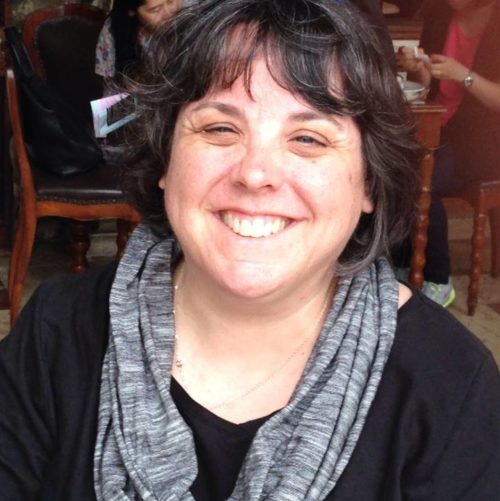Tomorrow is my 50th birthday. I come from a family who has always celebrated well, and birthdays are a big deal. Growing up, my mother made any meal you desired (as well as the accompanying dessert of your choice—cake, pie, or otherwise), and you got to pick a restaurant for a meal out, too. My family also gives wonderfully thoughtful gifts: to this day, for example, my father sends me roses in the days before my birthday so that I can enjoy “birthday week” in the right spirit.
So I’ve always loved my birthday. The fact that I share it with Robert Burns and Virginia Woolf gladdens my English professor heart. And Alicia Keys and Etta James joining us is just kinda cool as well. Of the last couple of decade birthdays, 30 was amazing: I started a new job (and a rare tenure-track one at that) in a new city. 40 was no big deal: ever since my hyper-responsible teen years, I’d felt about 40 anyway. Somehow it seemed my natural age. And I had a really amazing party to boot.
But 50 has been something else altogether. Maybe after my peripatetic Army brat youth, it feels odd to realize I have lived in the same city for 20 years—and will for the foreseeable future. (Perhaps it’s not surprising that I felt the itch to move to a new house last fall). Maybe it’s because I finally get that Dylan lyric: “I was so much older then, I’m younger than that now.” There’s so much I don’t know, so much I haven’t seen, so much I haven’t done. How can it be—thought of with the most extreme degree of optimism—that I’m halfway done (and let’s be honest probably more than). No one gets to 50 without loss: my mother died at 55, after all, so I know there are no guarantees.
I suppose it’s quite clichéd to ruminate as one settles ever deeper into the middle ages. But I’m not a natural brooder: I love my job, my dear friends, and the life I’ve made in this place. Still, I’ve wondered how to navigate a change that seems to be somehow different.
This past weekend I came across a gorgeous word on the Twitter account of Cambridge professor Robert Macfarlane (@RobGMacfarlane). Every day, Macfarlane posts an intriguing word, often from the real Middle Ages, along with a definition.
Sunday that word was “witness-tree,” defined by Macfarlane as “originally a tree that stood as a record of property boundaries, marked as such by scores in its bark. Now broadened to mean a tree that has seen remarkable things, that stands as ’a repository for the past’.” Turns out there are many famous “witness-trees” worldwide, and Twitter spent the rest of the day sharing photos of ones beloved in the communities associated with them.
Many of the most well-known ones in America are, probably unsurprisingly, at Civil War battlefields, riddled with Union and Confederate bullets. But the one that struck me the most is the tree on the site of the 1995 Oklahoma City bombing. Now called the Oklahoma City Survivor Tree, this American elm, which stood right next to the Alfred P. Murrah Federal Building, felt the full blast of the explosion, its bark beleaguered with the building’s shrapnel of metal and glass, its branches laden with a destroyed car’s hood. Officials initially wanted to take down the 100-year old tree and extract the building’s detritus to use as evidence, but community support for the tree as a symbol of survival meant that it now sits as the centerpiece of the Oklahoma City National Memorial.
We know from our biology classes how central trees are in producing the very air we breathe. We’ve seen the beauty of the bonsai and the sequoia. And it’s striking how much trees capture the imagination of the Biblical writers. The Tree of Life is a star of Genesis and Revelation (you can’t say that for many other Bible figures besides God). And despite a lack of mobility, trees are not figured as passive. They rather famously “clap their hands” in the Psalms and in Isaiah. They are to provide food for the “foreigner, the fatherless, and the widow” in Deuteronomy. And they know their place before God, the source of their flourishing, says Ezekiel 17:24: “All the trees of the forest will know that I the Lord bring down the tall tree and make the low tree grow tall. I dry up the green tree and make the dry tree flourish.”
Our culture so often equates rootedness with stodginess, with quiet desperation. But Psalm 1, one of the very first Bible passages I ever memorized, urges us to be a “person…like a tree planted by streams of water/which yields its fruit in its season/and whose leaf does not wither.” To be rooted as a witness-tree is a metaphor that might serve to make one well-contented in middle age. Indeed, it is powerful goal: to be something that lives, even with damage embedded, to testify.
As we concluded our interim class this week, one of my students called our attention to a quote from the writer and historian Kate Bowler and the profound way she helps us rethink our narrative expectations for our lives:
“A friend of mine always says, ‘The middle is not the end.’ And I love that. We want to fill in the end of the story all the time, and it’s really kind of gotten me to realize how much fuzziness we normally have in our lives when we make narrative arcs. We remember the beginnings of things. We remember the ends. But the middle is usually a blur….I’m so determined not to miss the middle.”
May the same be said of us, whether we are in a dark wood or the banks of the Jordan.

